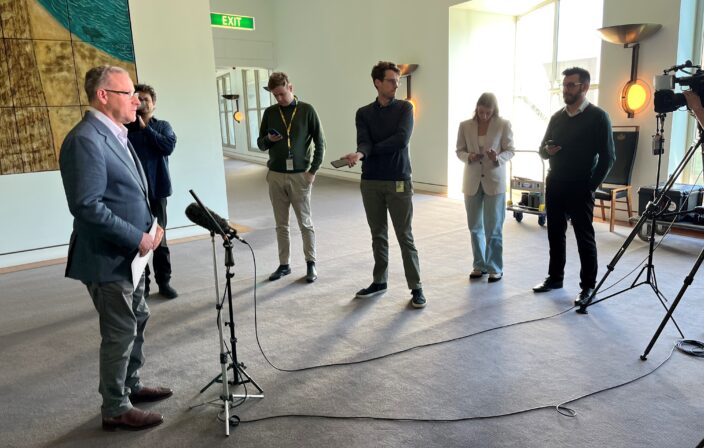Andrew McKellar interview with Tom Connell, Sky News NewsDay
28 Jul 2022
|Transcripts
Event: Andrew McKellar interview with Tom Connell, Sky News NewsDay.
Speakers: Andrew McKellar, chief executive Australian Chamber of Commerce and Industry; Tom Connell, host Sky News NewsDay.
Date: 27 July 2022.
Topics: Inflation figures, fuel excise, wages, cost of living, costs to business.
E&OE
Tom Connell, host NewsDay: Inflation in Australia has hit a 30-year high of 6.1 per cent. So, where to from here? Australian Chamber of Commerce and Industry CEO, Andrew McKellar, joins me in the studio. Jumping off the page, transport, 13 per cent up. That’s obviously a cost to people and to business. Does the government need to re-look at a fuel excise and that cut, and just making it a bit longer?
Andrew McKellar, chief executive Australian Chamber of Commerce and Industry: Well, I think that’s a question. There are no real surprises in today’s figures. It confirms that inflation is bubbling along. It’s a challenge for households and it’s a challenge for business. So look, I think this is a more general policy question. I don’t think it can be solved by doing special things on fuel excise. I think that’s a shortcut, so I don’t think that’s something that we’re necessarily calling for. Obviously, the government will need to look at that and assess whether that’s the right thing to do. But I think it’s much more about the general settings, monetary policy, and addressing the pressures on the supply side of the economy. That’s the only way we’re going to really fix this up.
Tom: Yeah. Well, they’re the major issues. The government’s spoken about supply chain issues. The monetary policy is being addressed. We’re getting rate rises. But we’re talking about what can happen in the short-term during this spike. Again, transport, if you give a fuel excise, you’re not giving cash and people are buying more of something, they generally take the same route to work whether petrol costs $2 or $1. So, you don’t think that would be a good idea?
Andrew: Look, it’s not something that we’re calling for. I do think there have got to be more fundamental solutions. So it’s about addressing things like the skills and labour shortages, really trying to take some of the pressure off there. We’ve had a lot of stimulus in the economy. There’s been an overhang of excess demand and now we’re facing very severe supply site shortages, both in labour and in materials and disruption. That’s really not just affecting Australia, but around the world. So look, we’ve got to be careful about trading off short-term quick fixes versus much more fundamental solutions. And I think that’s where we’d like to see the government focusing.
Tom: Business groups weren’t happy with the minimum wage decision, but does it seem more justified now we’ve got inflation at six and maybe heading to seven?
Andrew: I think it comes back to the point, we’ve got to be careful about feeding this inflation fire. If we keep chasing our tails here, then we’ll lock in higher inflation longer–
Tom: It still puts that wage increase well below where inflation’s getting to. So is that really chasing it?
Andrew: Well, it’s based on historical inflation, and of course there’ll be another wage case next year, which we’ll look at where inflation’s gone subsequently. So, we do have to be careful about chasing our tails.
Tom: Right now, that 5.1 doesn’t feel as high as it did back then, does it?
Andrew: What it is doing is still feeding back into higher costs for business. And the risk is, if we continue to chase after inflation, that we’re going to lock in expectations in the quarters ahead.
Tom: Better leave it there. Andrew McKellar, thank you.
Andrew: Okay, thanks Tom.


